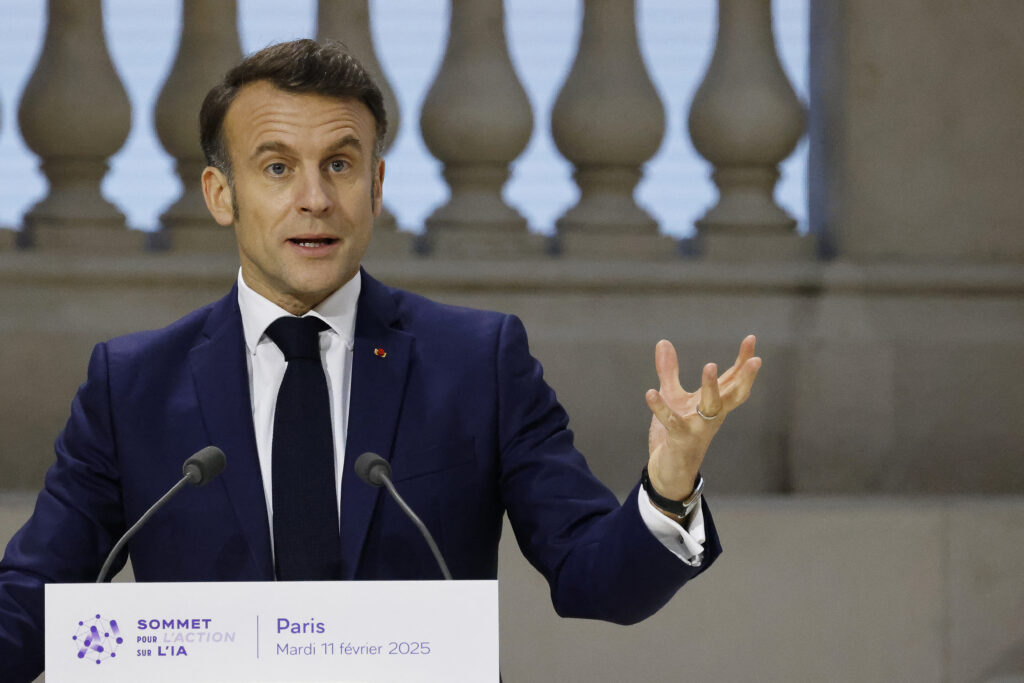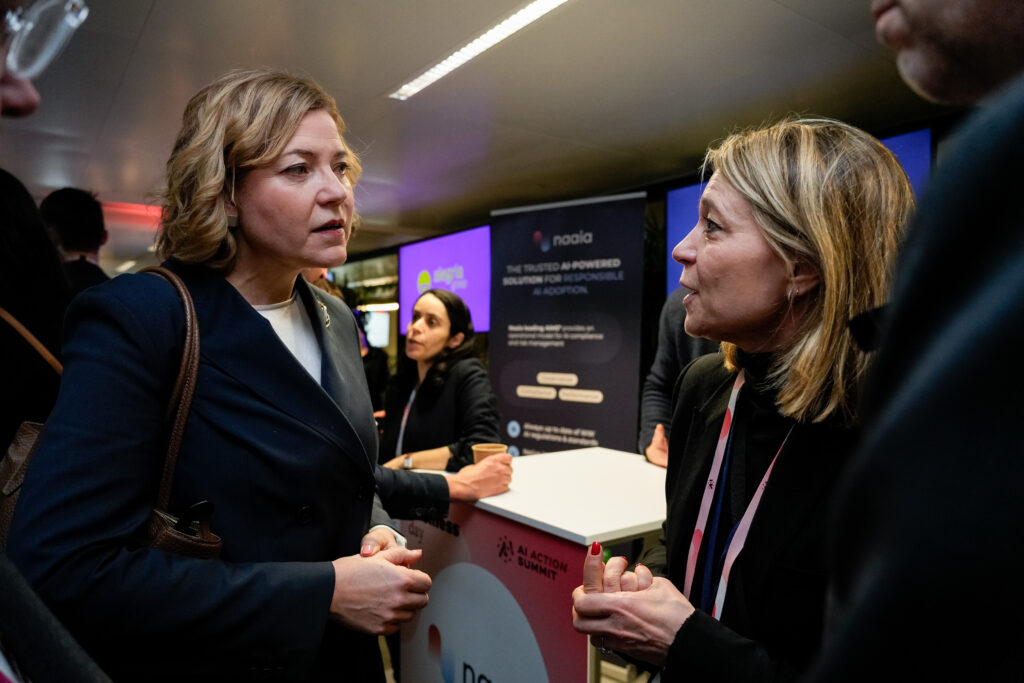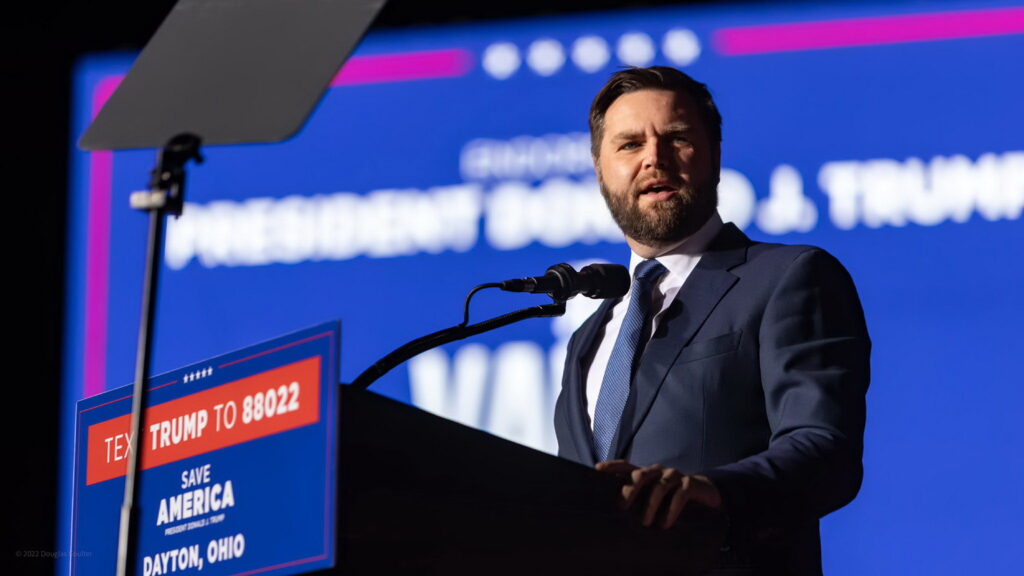Brussels – “The time has come to formulate a vision of where we want artificial intelligence to take us, as a society and as humanity.” With these words delivered from the stage of the AI Action Summit underway in Paris, European Commission President Ursula von der Leyen reiterated that the time for reflections on artificial intelligence (AI) is over, and the time for action has begun. This action, judging from the speeches of the keynote speakers, will essentially result in global deregulation to foster the commercial development of this promising technology.
The AI Action Summit gathered global heads of state and government, entrepreneurs, CEOs from companies of various sizes, academics, experts, NGOs, and other civil society members in Paris yesterday and today (Feb. 10 and 11). French President Emmanuel Macron and his Indian counterpart Narendra Modi welcomed them to discuss how to leverage the opportunities offered by artificial intelligence.

The “AI Continent”
Speaking from the Grand Palais, the massive glass and steel palace built for the 1900 Paris Exposition, the head of the EU executive remarked that while previous international meetings had focused on reaching a “shared consensus” on “AI safety,” it was now the time to move from words to deeds.
“We want Europe to be one of the leading continents” in developing this new technology, she said, indicating that this means “embracing a way of life where AI is everywhere.” “It can help us increase our competitiveness, protect our security, support public health, and make access to knowledge and information more democratic,” she continued, announcing to investors and entrepreneurs attending the event that she intends to make the EU “the AI continent.”
“The race for AI is far from over,” and “the frontier is constantly moving,” she said, downplaying the Old Continent’s delay in competing with China and the United States. “Global leadership is still up for grabs,” she added, suggesting that Europe can aspire to it since “behind the frontier lies the whole world of AI adoption,” where the EU “can truly lead the race” for the industrial application of these technologies.
The European Way to AI
Other distinguishing features of European AI would be, she said, its “cooperative” and “collaborative” spirit (modeled after the Horizon Europe program) and its open-source nature. These elements would already make the Made in Europe artificial intelligence a success. However, it needs further enhancement. How? Accelerating innovation by providing “public supercomputers” at the service of start-ups and scientists to “create the AI we need.” To this end, von der Leyen announced the creation of 12 “artificial intelligence factories,” with investments of 10 billion euros.

The next level will be the so-called gigafactories — “very large data and computing infrastructures to train very large models,” CERN-like places for AI where “researchers, entrepreneurs, and investors can join forces,” as is the case at the Geneva Nuclear Research Center. They will welcome “talent from all over the world” and “industries will be able to collaborate and federate their data” because, the president reiterated for the umpteenth time, “AI needs competition but also collaboration” so that “everyone benefits.”
Investing in innovation
The other cornerstone of the strategy to realize the European way to AI is funding, which von der Leyen never tires of repeating, which must come from both the public and private sectors. The head of the commission announced from the stage of the Grand Palais, the InvestAI initiative worth 200 billion, split between the European Champions Initiative (that pledges 150 billion from suppliers, investors and industrialists ) and 50 billion that will instead be mobilized by Brussels (of this, 20 will be earmarked for the creation of four gigafactories).
“We will focus on industrial and mission-critical applications,” von der Leyen pointed, labeling this initiative as “the world’s largest public-private partnership for the development of a trustworthy AI.” In keeping with the spirit of the times, the chair also promised simpler procedures and a less bureaucracy, in line with The New Brussels Bible, the Competitiveness Compass.
Towards global deregulation?
On the eve of the conference, the host had posted on X an AI-generated video in which his face was placed on different “bodies,” real and imaginary, as a celebration of the potential of these digital technologies. He also announced that France will benefit from private investment of 109 billion in a series of projects related to artificial intelligence, a plan that Monsieur le Président compared to the Stargate initiative promoted in the United States by OpenAI (which, however, promised 500 billion).
Well done… pic.twitter.com/zthA2zIBja
– Emmanuel Macron (@EmmanuelMacron) February 9, 2025
Macron is thus attempting to make himself a standard-bearer for the shift in perspective taking hold in the Old Continent, where there is a rapid transition from the focus on regulation to simplification, seen as the prerequisite for innovation (itself a necessary condition for regaining lost competitiveness). “We will simplify,” he told his audience, adding that “we need to resynchronize with the rest of the world.”
Henna Virkkunen, executive vice-president of the European Commission responsible for Technological Sovereignty, Security and Democracy, was on the same wavelength, assuring that the EU Artificial Intelligence Legislation (AI Act) will be implemented in a “very innovation-friendly” manner. The EU executive intends to achieve this goal through the controversial Omnibus measures coming in the next few months (one as early as late February, and two more in the second half of 2025). “We will reduce red tape and administrative burdens on our industries,” she promised, stressing that “we need to review our rules” because they involve “too much regulatory overlap.”
At least concerning AI, therefore, there seems to be some harmony between the two sides of the Atlantic. In a lengthy speech, US Vice President James David Vance emphasized how more the “opportunities” offered by these technologies should be more fully used and that it is necessary to move away from a “overly risk-averse” mentality, as “AI overregulation could kill this transformative industry just as it is beginning to take off.” The appeal to European partners could not have been more explicit: “We need global regulatory regimes to promote AI rather than strangle it,” he said, urging to look “at this new frontier with optimism rather than trepidation.”







![Nicola Procaccini, co-presidente del gruppo Ecr [Strasburgo, 11 febbraio 2025. Foto: ]](https://www.eunews.it/wp-content/uploads/2025/02/procaccini-120x86.png)